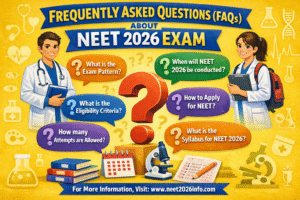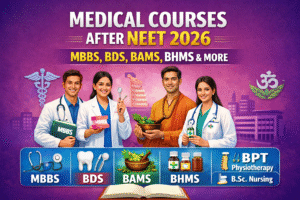| Paper | Marks | Duration | Question Type |
|---|---|---|---|
| GS Paper 1 | 250 Marks | 3 Hours | Descriptive (Essay Type) |
- The paper is merit-based and counts toward the final rank.
- Answers need to be written in a structured and analytical manner within a word limit of 150–250 words per question.
UPSC Mains GS-1 Syllabus (Official)
The syllabus for GS-1 is broadly divided into three major sections:
1. History (Indian Heritage & Culture, Modern India, World History)
- Indian Culture – Salient features of art forms, literature, and architecture from ancient to modern times.
- Modern Indian History (1757–1947) – Significant events, personalities, and issues related to the freedom struggle.
- Post-Independence India – Major political, economic, and social developments after 1947.
- World History – Major world events from the 18th century (Industrial Revolution, World Wars, Colonization, and Decolonization).
2. Geography (Indian & World Geography, Physical & Human Geography)
- Physical Geography – Important geographical features, including the Himalayas, rivers, monsoons, climate, and natural disasters.
- Human & Economic Geography – Population, migration, urbanization, and resources.
- World Geography – Geographical phenomena like earthquakes, tsunamis, cyclones, and climate change.
3. Society (Indian Society, Diversity, Globalization, and Women Empowerment)
- Salient features of Indian society – Diversity, caste system, communalism, secularism, and social empowerment.
- Women and Social Issues – Role of women, issues like gender inequality, crime against women, and government schemes.
- Globalization and its impact on Indian Society – Economic, political, and social aspects.
- Social Empowerment, Communalism, Secularism, and Regionalism – Important concepts affecting national integration and social harmony.
How to Prepare for UPSC Mains GS Paper 1?
A strong strategy with structured notes, answer writing practice, and multiple revisions is key to mastering GS Paper 1.
1. Indian Art & Culture
📌 Focus Areas:
- Ancient and medieval art, literature, and architecture.
- Classical and folk dances, music, painting, and sculpture.
📚 Recommended Books:
- NCERT Class 11 Fine Arts – Basic foundation.
- Nitin Singhania’s Indian Art & Culture – Most comprehensive source.
- CCRT Website & PIB Articles – Government sources for authenticity.
✍ Preparation Tips:
- Make notes on each art form (dance, music, painting, etc.).
- Use mind maps and visual memory techniques.
- Revise through previous year UPSC questions.
2. Modern Indian History & Freedom Struggle
📌 Focus Areas:
- British expansion and its impact.
- Important freedom fighters and revolutions.
- Socio-religious reforms and their significance.
📚 Recommended Books:
- Spectrum’s Modern History – Comprehensive coverage.
- NCERT Class 12 (Themes in Indian History Part-3) – Good for basics.
- Bipan Chandra’s India’s Struggle for Independence – For detailed analysis.
✍ Preparation Tips:
- Chronological timelines of events help in retention.
- Focus on causes, consequences, and significance of each movement.
- Write answer-based summaries after studying each topic.
3. World History
📌 Focus Areas:
- French Revolution, Industrial Revolution and their impact.
- World Wars (WWI & WWII) – Causes and consequences.
- Cold War, Decolonization, and Globalization.
📚 Recommended Books:
- Norman Lowe’s Mastering Modern World History – Best for analysis.
- NCERT Class 9 & 10 World History – Basics.
✍ Preparation Tips:
- Focus on causes, consequences, and impact on India.
- Use flowcharts to summarize major events.
4. Indian & World Geography
📌 Focus Areas:
- Physical Geography: Rivers, monsoons, plate tectonics, etc.
- Economic Geography: Industrial locations, minerals, and resources.
- Disaster Management: Cyclones, earthquakes, and government responses.
📚 Recommended Books:
- NCERT Class 6–12 Geography – Covers all basics.
- G.C. Leong’s Physical Geography – For conceptual clarity.
- Atlas (Oxford or Orient BlackSwan) – Crucial for map-based questions.
✍ Preparation Tips:
- Practice map-based questions regularly.
- Use diagrams, flowcharts, and short notes for retention.
- Study current affairs related to geography (climate change, urbanization).
5. Indian Society & Social Issues
📌 Focus Areas:
- Caste system, communalism, secularism, and gender issues.
- Urbanization, migration, and social empowerment.
- Globalization’s impact on Indian culture and traditions.
📚 Recommended Books:
- NCERT Sociology Class 11 & 12 – Strong foundation.
- IGNOU Material on Sociology – For detailed insights.
✍ Preparation Tips:
- Use real-life examples and case studies in answers.
- Make short notes on different social issues.
- Analyze government schemes and policies related to social empowerment.
Answer Writing Strategy for GS-1
📌 Key Points:
✅ Introduction (Definition or Fact-Based Start)
✅ Body (Subheadings, Bullet Points, Flowcharts)
✅ Conclusion (Way Forward, Government Schemes, Sustainable Solutions)
📝 Example:
Q: What were the socio-economic consequences of British rule in India?
✔ Introduction: Short background on British policies.
✔ Body:
- Economic Exploitation: Drain of wealth, deindustrialization.
- Social Disruptions: Impact on caste, education, and agriculture.
✔ Conclusion: Long-term impact on India’s freedom movement.
✍ Practice Answer Writing Every Day!
Final Thoughts
UPSC Mains GS-1 demands a mix of factual accuracy and analytical skills. With smart notes, structured answers, and effective revision, aspirants can score well above 100+ marks.
🔹 Follow a disciplined approach.
🔹 Revise multiple times before the exam.
🔹 Practice writing answers in a time-bound manner.
🚀 Stay consistent, stay motivated, and ace UPSC Mains GS Paper 1!







